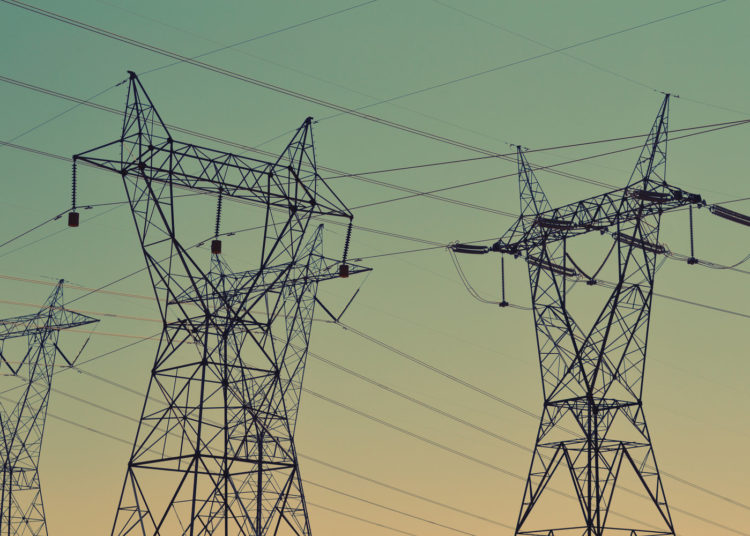The Transmission Company of Nigeria (TCN) reported that a significant power outage caused by faulty transmission lines has plunged several northern states into darkness.
In response, the federal government has established a six-member committee to investigate the ongoing national grid collapses and propose solutions within nine days.
Minister of Power Adebayo Adelabu, who formed the committee, tasked them with providing the federal government with necessary solutions to enhance the national grid’s reliability by November 1, 2024.
Bolaji Tunji, Special Adviser on Strategic Communication and Media Relations to the Minister of Power, announced this in a statement in Abuja.
The national grid has collapsed three times in the past week, causing considerable concern. The minister expressed his dissatisfaction with these incidents, stating they could undermine the significant progress achieved in the past year.
The committee includes Nafisat Ali, Executive Director of the Independent System Operator (ISO), who will lead it; Dr Chidi Ike, Commissioner of the Nigerian Electricity Regulatory Commission (NERC); and Engr. Ishola, General Manager of the National Control Centre (NCC). Additional members are Emmanuel Nosike, Director of Transmission at the Ministry of Power; Ali Sharifai, General Manager of the Transmission Service Provider (TSP); and Adedayo Olowoniyi, Chief Technical Adviser to the Minister of Power.
TCN indicated that a fault in the 330kV Ugwaji–Apir transmission lines led to a significant outage affecting the Northeast, Northwest, and parts of North Central Nigeria. The incident began around 4:53 a.m. on Monday when the Ugwuaji–Makurdi Line 2 tripped, resulting in a total loss of 468 MW by 4:58 a.m.
Despite the efforts of two teams dispatched for fault tracing, the cause of the outage remains undetermined, according to a statement from TCN’s General Manager of Public Affairs, Ndidi Mbah. Although TCN has restored supply to the 132kV line, the 330kV lines are still down, severely impacting power distribution in the northern region.
TCN has apologised for the inconvenience and is working to resolve the issue. “Following the tripping incidents, two teams of linesmen were dispatched—one from the Apir Transmission Sub-region and another from Enugu transmission—to expedite fault tracing along the 215 km route, which includes 245 transmission towers. Throughout Monday, the Apir team patrolled the line, navigating difficult terrains in search of the fault, reaching as far as the River Benue. They could not locate the cause of the tripping and will continue fault tracing,” Mbah stated.
The lines patrol team from the Enugu Region was unable to commence patrols due to the sit-at-home directive in the South East for October 21 and 22, 2024. “This hindered not only the patrol team but also made it difficult to refuel vehicles for the long-distance line trace. Arrangements have been made for security operatives to guide the team, who have resumed fault tracing this morning.”
Currently, TCN has restored supply to the 132kV transmission line from New Haven to Apir, but the 330kV lines remain out of service. The Shiroro-Mando transmission line is also down due to security reasons, exacerbating power outages in the North.
The minister has stated that the committee will also investigate potential sabotage of the system. “The committee will review the national grid’s stability and identify necessary investments and technical capacities to make the grid smart and resilient.”
Tunji noted that a partial grid collapse occurred on October 14 due to a line tripping at the Jebba Transmission Substation, alongside a recurring fault at the Osogbo Transmission Substation. He explained that efforts to restore the grid led to a setback, but the system was fully restored by October 16.
“There was no grid collapse on Tuesday; the setback was part of Monday’s restoration efforts. What was described on October 19 as a grid collapse was a deliberate protective shutdown due to the explosion of the Jebba transformer, restored within two hours. What we experienced were more grid disturbances than collapses,” he clarified.
Tunji stated that preliminary assessments suggested the Jebba explosion was due to ageing equipment, unrelated to the initial collapse. He added that the committee complements ongoing efforts, including the Presidential Power Initiatives (PPI) and the Nigeria Electricity Transmission Project (NETAP), aimed at ensuring a reliable power supply.
The minister invited the leadership of NERC and TCN to an emergency meeting over grid disturbances at the weekend.
In a message to electricity consumers in its franchise states, the Kano Electricity Distribution Company (KEDCO) attributed the power shortage to disturbances in the national grid and vandalism damaging two towers along the 330kV Shiroro–Kaduna transmission lines 1 and 2.
KEDCO’s Chief Commercial Officer, Abubakar Jimeta, held an emergency press briefing, stating, “We understand the inconvenience caused to our customers and are working diligently to resolve the issue. We are engaging necessary stakeholders, including TCN and NERC, to find a lasting solution for improved electricity supply.”
Residents of Kaduna lamented the ongoing power outage, which has left businesses struggling. Kaduna city has faced total darkness for over 48 hours, with some areas experiencing blackouts for the past week.
On Monday, Kaduna Electric acknowledged the outages in Kaduna, Zaria, and Gusau, linking the situation to the loss of TCN’s bulk power supply. Corporate Affairs Head Abdul-Azeez Abdullahi confirmed that TCN’s Agwaji-Benue-Jos 330kV circuit tripped, interrupting supply.
The power outage has severely impacted businesses reliant on electricity, such as welding and borehole operations. Victoria Yahaya, a resident, expressed frustration, stating, “For over five days we have not been able to pump water; I trek for over 30 minutes looking for well water just to cook for my family.”
Haruna Mohammed, a welder, lamented, “We are already suffering; this power outage has increased our pains. Fuel is also expensive.”
Abdullahi Lawal, a barbershop owner, appealed to Kaduna Electric to address the situation urgently. Meanwhile, phone charging businesses are thriving, as residents resort to paying N200 to charge their devices, a cost they must repeat daily.





